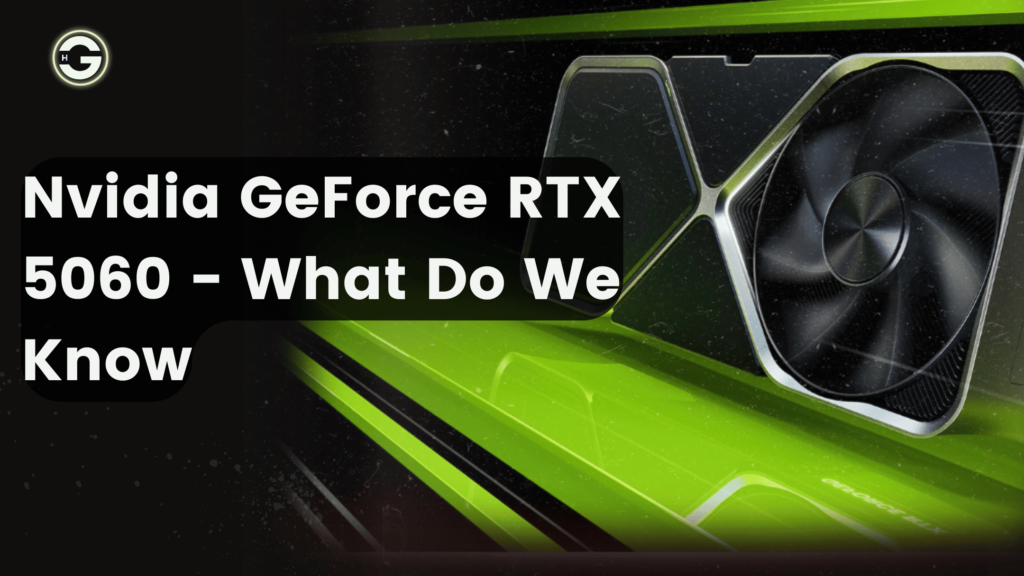Nvidia didn’t fully showcase the GeForce RTX 50 series at CES 2025. However, a previous leak revealed some of the specifications for the lower-end models. Recently, leaker @Olrak29_ revealed surprising details about one of Nvidia’s entry-level cards: the GeForce RTX 5060 Ti.
The Eurasian Economic Commission (EEC) website recently listed two versions of the GeForce RTX 5060 Ti: one with 8GB of VRAM and another with 16GB. In contrast, the standard GeForce RTX 5060 will only be available in an 8GB version. This difference in VRAM suggests that Nvidia is targeting a more budget-conscious audience with the RTX 5060 Ti. The 8GB version should be more than sufficient for most users, and it will likely be priced lower than the 16GB version.
- Nvidia GeForce RTX 5060 Ti Overview
- AI-Driven Innovations in the RTX 5060 Series
- 8 GB vs. 16 GB: Which RTX 5060 Ti Variant Is Right for You?
- Anticipated Performance of the RTX 5060 Ti
- How Does the RTX 5060 Ti Compare to AMD’s Radeon RX 9060 XT?
- The Budget Gamer’s Perspective: Nvidia GeForce RTX 5060
- What Makes the RTX 5060 Series Unique?
- Conclusion
- Frequently Asked Questions
Nvidia GeForce RTX 5060 Ti Overview
The Nvidia GeForce RTX 5060 Ti is set to launch with two distinct variants: one with 8 GB VRAM and another with a generous 16 GB VRAM. This dual-configuration approach reflects Nvidia’s commitment to catering to gamers with different performance requirements and budget considerations.
Interestingly, the base RTX 5060 will only feature an 8 GB VRAM configuration. By offering these options, Nvidia positions the RTX 5060 Ti as a flexible mid-tier GPU that bridges the gap between affordability and performance.
AI-Driven Innovations in the RTX 5060 Series
The RTX 5060 series will likely lean heavily on AI technology to deliver a performance boost, a key differentiator compared to prior generations. Nvidia has consistently pushed the envelope with its AI-powered features, and the upcoming series is no exception. Some of the standout AI advancements expected include:
- DLSS 3 (Deep Learning Super Sampling): A refinement of Nvidia’s groundbreaking AI-based upscaling technology, designed to enhance frame rates and image clarity without taxing the GPU.
- AI Frame Generation: This feature dynamically interpolates frames, creating smoother gameplay even in demanding titles.
- Improved Ray Tracing Performance: While raw hardware upgrades may be limited, AI enhancements could optimize ray-tracing effects for more immersive visuals.
These improvements demonstrate Nvidia’s pivot toward computational efficiency over sheer hardware horsepower, a strategy that could redefine expectations for mid-range GPUs.
8 GB vs. 16 GB: Which RTX 5060 Ti Variant Is Right for You?
Choosing between the 8 GB and 16 GB versions of the RTX 5060 Ti depends on your gaming needs and the workloads you plan to handle.
8 GB Variant
- Target Audience: Casual gamers and esports enthusiasts.
- Performance Focus: Adequate for 1080p gaming with medium to high settings.
- Price Point: More affordable, making it ideal for budget-conscious gamers.
16 GB Variant
- Target Audience: Gamers who demand higher resolutions or engage in content creation.
- Performance Focus: Optimized for 1440p gaming and multitasking, with greater capacity for handling high-resolution textures.
- Price Point: Positioned as a premium mid-range option.
Anticipated Performance of the RTX 5060 Ti
While specific benchmarks are yet to be revealed, early leaks suggest that raw performance gains over the RTX 4060 series may be modest. The RTX 5060 Ti is expected to use the GB206 GPU on a PG152 board, a configuration aimed at efficiency rather than brute strength.
However, Nvidia’s reliance on AI-powered features could bridge the performance gap, offering superior real-world gaming experiences. For example, DLSS 3 could potentially elevate the RTX 5060 Ti’s perceived performance beyond its raw hardware limitations.
How Does the RTX 5060 Ti Compare to AMD’s Radeon RX 9060 XT?
The upcoming Radeon RX 9060 XT from AMD is anticipated to be a strong contender in the mid-range GPU market. However, Nvidia’s strategy focuses on differentiation rather than direct competition.
Key Differences
- AI Features: Nvidia has a significant edge with DLSS and AI frame generation, which AMD has yet to rival comprehensively.
- Price Point: AMD typically offers slightly more aggressive pricing, but Nvidia’s dual-variant strategy provides consumers with additional flexibility.
- Target Market: While AMD may cater to raw performance enthusiasts, Nvidia aims to attract gamers who value AI-driven enhancements and a more balanced gaming experience.
The Budget Gamer’s Perspective: Nvidia GeForce RTX 5060
For those who don’t need the advanced features of the RTX 5060 Ti, the base RTX 5060 provides a solid alternative. Its 8 GB VRAM is suitable for most modern titles at 1080p, and it benefits from many of the same AI-driven technologies.
What Makes the RTX 5060 Series Unique?
The Nvidia RTX 5060 series represents a shift in GPU innovation. Instead of focusing solely on traditional hardware upgrades, Nvidia is leveraging the power of AI to deliver smarter, more efficient performance. This marks a turning point where software-driven enhancements are as crucial as physical specifications.
Conclusion
The Nvidia GeForce RTX 5060 Ti series signals a pivotal shift in GPU design. By offering dual VRAM variants and focusing on AI-driven performance enhancements, Nvidia caters to a diverse range of gamers while challenging traditional notions of hardware advancement. With its March release approaching, the RTX 5060 Ti is poised to set a new standard for mid-range GPUs, blending affordability, versatility, and cutting-edge innovation.
Frequently Asked Questions
- What are the expected performance benchmarks for the RTX 5060 Ti compared to its predecessors?
Initial reports suggest incremental hardware improvements, but AI features like DLSS 3 and frame generation could elevate real-world gaming performance, offering a smoother experience than the RTX 4060 Ti. - How does the RTX 5060 Ti compare to AMD’s upcoming Radeon RX 9060 XT?
The RTX 5060 Ti emphasizes AI-driven enhancements, while the RX 9060 XT is likely to focus on raw hardware power and competitive pricing. Nvidia’s offering may appeal more to gamers seeking smoother gameplay and visual fidelity. - What potential impact will AI enhancements have on gaming performance in the new RTX series?
AI technologies like DLSS 3 can significantly boost frame rates and image quality, making demanding games playable at higher resolutions, even with mid-range GPUs. - Who should consider the 16 GB version of the RTX 5060 Ti?
Gamers who play at 1440p or higher resolutions, as well as content creators working with high-resolution assets, will benefit most from the additional VRAM. - When is the RTX 5060 Ti expected to launch?
The RTX 5060 Ti is rumored to launch in March, alongside its base RTX 5060 counterpart. - Will the RTX 5060 series support ray tracing?
Yes, both the RTX 5060 and RTX 5060 Ti will support ray tracing, with AI-driven optimizations enhancing performance in compatible titles.

